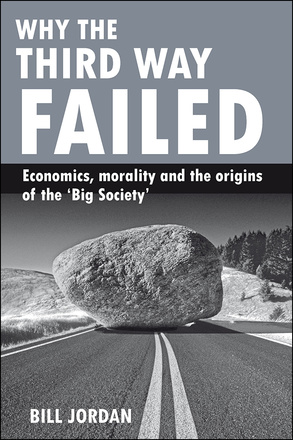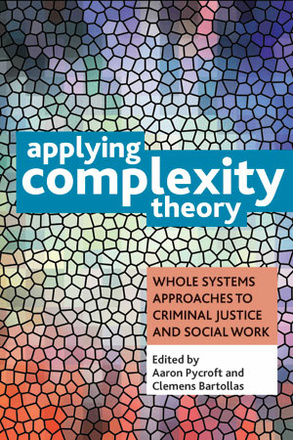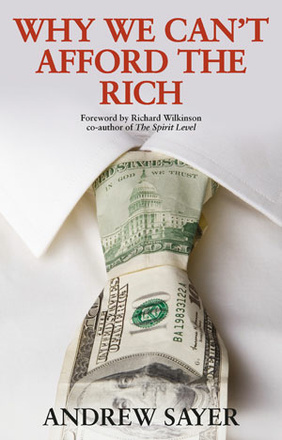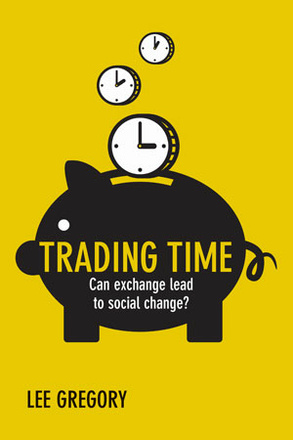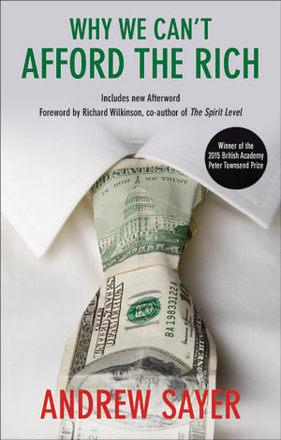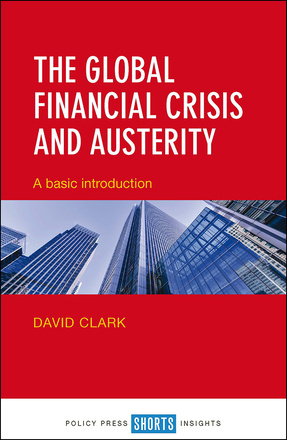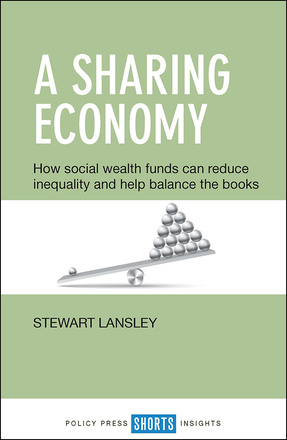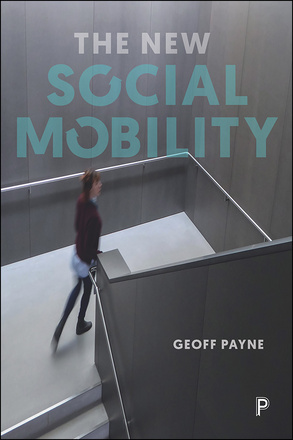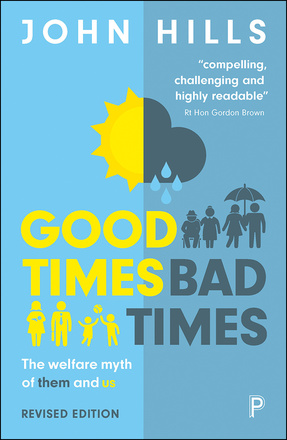Social economics
Why the Third Way failed
Economics, morality and the origins of the 'Big Society'
This insightful and progressive book proposes a new moral approach to public policy to replace Third Way governments' failed attempts to reconcile global markets with ethically-informed public policies.
Wealth and the Wealthy
Exploring and Tackling Inequalities between Rich and Poor
Using many data sources, this timely book provides a comprehensive discussion of issues of wealth, looking at potential policy responses, including 'asset-based' welfare and taxation.
Applying Complexity Theory
Whole Systems Approaches to Criminal Justice and Social Work
This is the first book to explore the application of complexity theory to difficult practice issues in criminal justice and social work and brings together experts in this emerging field to address complexity theory from a range of perspectives, providing a detailed but accessible discussion of the key issues to whole systems approaches.
Why We Can't Afford the Rich
Why we can’t afford the rich exposes the unjust and dysfunctional mechanisms that allow the top 1% to siphon off wealth produced by others. With an updated Afterword, Andrew Sayer shows how the rich worldwide have increased their ability to hide their wealth, create indebtedness and expand their political influence.
Sixteen for '16
A Progressive Agenda for a Better America
Sixteen for '16 offers a new agenda for the 2016 US election crafted around sixteen core principles from securing jobs to saving the Earth.
It is a manifesto which makes the argument for each of these positions, clearly, concisely, and supported by hard data. Its progressive agenda charts a realistic path toward a better tomorrow.
Trading Time
Can Exchange Lead to Social Change?
As time banking has received increased attention from policy makers as a means for promoting welfare reform in the wake of austerity, this book is the first to look at the concept of time within social policy to examine time banking theory and practice.
Brain Culture
Shaping Policy Through Neuroscience
This unique book offers a timely analysis of the impact of rapidly advancing knowledge about the brain, mind and behaviour on contemporary public policy and practice. It analyses the global spread of research agendas, policy experiments and everyday practice informed by ‘brain culture’.
Why We Can't Afford the Rich
Why we can’t afford the rich exposes the unjust and dysfunctional mechanisms that allow the top 1% to siphon off wealth produced by others. With an updated Afterword, Andrew Sayer shows how the rich worldwide have increased their ability to hide their wealth, create indebtedness and expand their political influence.
The Global Financial Crisis and Austerity
A Basic Introduction
Written by an expert in political science and straddling finance, economics and political science, this entry-level summary demystifies global finance and puts the financial crisis in its historical context. It also outlines the policy responses of Western governments to the crash and the ensuing recession and turn to austerity.
A Sharing Economy
How Social Wealth Funds Can Reduce Inequality and Help Balance the Books
A Sharing Economy proposes radical new ways to close the UK’s growing income gap and spread social opportunities. A new social wealth fund would boost economic and social investment and simultaneously strengthen the public finances and offer a powerful antidote to austerity.
The New Social Mobility
How the Politicians Got It Wrong
Geoff Payne considers a wide range of dimensions of mobility and life chances to assess the causes and consequences of mobility as social and political processes and challenges well-established opinions of politicians, pressure groups, the press, academics and the public.
Good Times, Bad Times
The Welfare Myth of Them and Us
This revised edition uses extensive updated research and survey evidence to challenge the view of 'skivers versus strivers', showing how much our lives vary not just as we age, but from week-to-week and year-to-year.







